Local clubs in South Australia’s regions have been missing sport the most, and are hoping for a return to play soon
Sporting organisations across SA are doing it tough, but arguably none more so than Lobethal Football Club – which has been hit by both bushfires and COVID-19 in a matter of months.
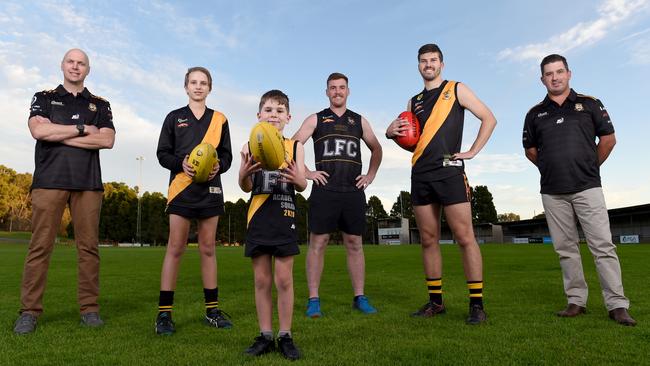
Sport
Don't miss out on the headlines from Sport. Followed categories will be added to My News.
Support Our Clubs: AFL | SANFL | Netball | Soccer | Women’s
- How to get the most out of your Advertiser digital subscription
Football clubs are often built on resilience and tough people willing to work hard for their community.
Now more than ever, Lobethal Football Club needs just that.
The Cudlee Creek bushfires in December destroyed homes, properties and businesses of people in the Lobethal community, many of who are directly or indirectly involved with their beloved Tigers.
And just as the Adelaide Hills town began to rebuild it, like so many, were hit with the economic impact of the coronavirus pandemic.
Rather than struggle, the football club continues to carry on, according to president Randall Weeks.
“There’s still a legacy there from the bushfires, that’s for sure,” Weeks said.
“We’re still getting over it.
“We had a number of families who lost everything, house, shed and those sort of things and several more that were severely affected by the loss of stock.
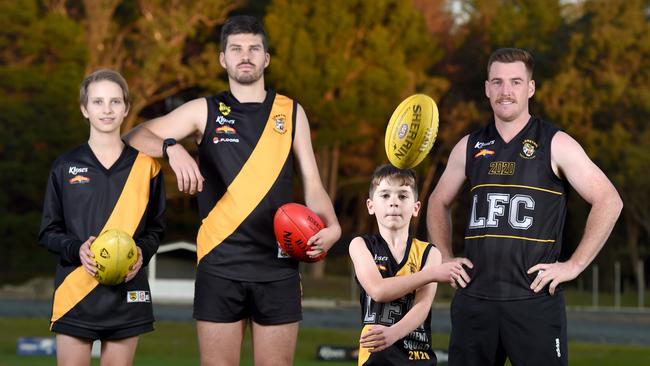
“And quite a number of businesses that normally support the footy club with different levels of sponsorship that were also affected badly.
“A lot of people in the community were hit and the footy club was hurt financially as well.
“That was a bit of a shock to the community and then everyone rallied around that and got back on track … then COVID-19 hit.
“To be able to get footy back, if the health authorities allow it, would give everyone a massive boost.”
Despite the double dose of crisis, Weeks believed the division one Hills Football League club would be able to make it through.
“We’ve had a few sponsors come back to us wanting a refund on the sponsorship deals, particularly during COVID-19,” Weeks said.
“We’re a week-to-week financial proposition, if you like, because what we make on home games from gate entry fees, food and drink and that basically covers our expenses.
“So, the fact we’re not playing games at the moment means we don’t have many expenses at all really.”
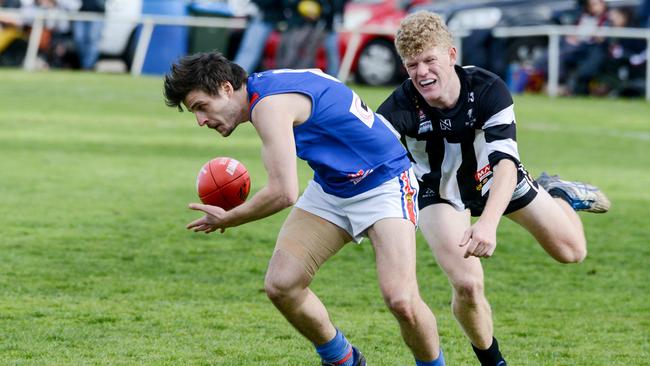
Hills Football League president Don Cranwell was hopeful competition would still get underway at some stage this year.
But he was fully aware of the circumstances Lobethal and many other clubs have faced.
“We’re still recovering from the bushfires and now we’ve gone into COVID-19; it hasn’t been easy,” Cranwell said.
“And we’re a large league, very diverse, we’ve got 19 footy clubs.
“We service what I would large population centres along the south eastern freeway and we’ve got small country towns.
“They’re all different and we’re very mindful of that.”
At Kersbrook, a division two club tucked away in the Torrens Valley, president Matt Coad said the country club had banded together with the community.
“A few of our sponsors have still paid their sponsorship for this year and a few haven’t been able to pay as much or not at all,” Coad said.
“And we’ve said ‘fair enough’. Clubs like us rely on the pub and the local shop for sponsorship and they haven’t been able to open.
“Everyone’s in the same boat at the moment and we’ve just got to accept it and help each other out.”
Country sport is a way of life
Nowhere is the lack of a sporting fixture felt more keenly than in the country, where the chance for a community catch-up over the weekend match is as important as the scoreboard result.
For children, in particular, sport provides the opportunity to get off the farm and meet and mix with other young people.
And if there’s one thing country kids have on their city cousins during the coronavirus shutdown it is space to run – and kick a football.
Keen young North Clare football playing brothers Eddie, Archie, and Charlie Jones headed to Farrell Flat east of Clare during the week to practice some skills with Sam Baum on his family’s property.
Sam’s dad, Warren, is the U17s coach for 2020, and took some time off the tractor and putting in his crop to talk community sport.
Mr Baum said social interaction was the single most important aspect to country sport.
“The kids get to meet and know so many more kids through footy and they go on to build connections with them outside of sport as well,” he said.
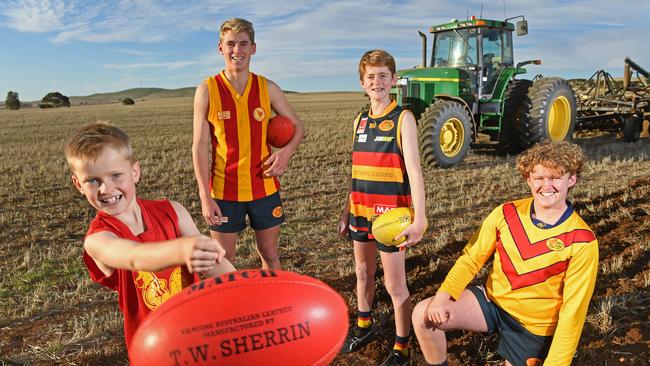
Gabrielle Jones, mum to the three visiting boys, agreed.
“Sport in rural communities is about so much more than just the sport – it’s the friendship, the belonging, the volunteering and a chance to just get out and have a chat and a laugh with mates,” she said.
Dedicated netballer Katie Liebelt, who is also assistant principal at the Clare High School, agreed that sport was crucial for rural youngsters.
“It is the main social contact event over a weekend break … in regional areas there are just not the opportunities to be involved in a range of activities as there is in the city,” she said.
“It provides a day out for the whole family, including the older generations, who will volunteer as goal umpires and trainers.
“It is a bit different to the city, where you turn up, play and then go home, families stay at the club the entire day.
“Also, a lot of our kids are involved in coaching or leadership roles, or they volunteer at the canteen, run water, do boundary umpiring.
“They are missing that.”
The likely return of community sport has injected new energy into the schoolyard at Mt Gambier High, according to Kerran Wingard, who heads up its special sport program.
MORE NEWS
Here is a list of top 10 school sport stars to keep an eye on when sport resumes this year
10 of the best success stories of players going from the Adelaide Footy League to the AFL and SANFL
He said the body language of students had changed dramatically in the past few days.
“When they first learned they may not be able to play winter sport, it was like seeing shells of kids rock up to school,” he said.
“This week you can see the spark is in the kids’ eyes again, there is a new level of excitement.
“They are talking about how they can pick up their fitness, how long it might be until the season starts, all those sorts of things.”
Eastern Eyre Football League president Andrew Jenner agreed kids had been hardest hit by the cancellation of community sport.
“Adults can make their own fun but kids need to have a run around and have a kick and a catch,” he said.
Michael Nugent, a GP in Clare for the past 20 years, said clubs played a vital role for those in trouble.
“We have seen it with lots of things where someone gets really crook, or someone’s child has had a bad accident, it is the footy or netball club that is the first to rally around (them),” he said.
‘Mad Mums’ love their footy
For Diedre Earle the friendships she forged on the sideline of junior footy 16 years ago are among the dearest to her.
“Our friendship has grown to the point we are now family – we have Christmas breakfast together and celebrate all our kids’ milestone birthdays together,” the 48-year-old said.
“The girls and all their crew are my family ... I am extremely grateful and thankful for that every day of my life.”
A core group five make up the group affectionately known as the “Mad Mums” but others are welcome to join the North Clare Football Club supporter base whenever they choose.
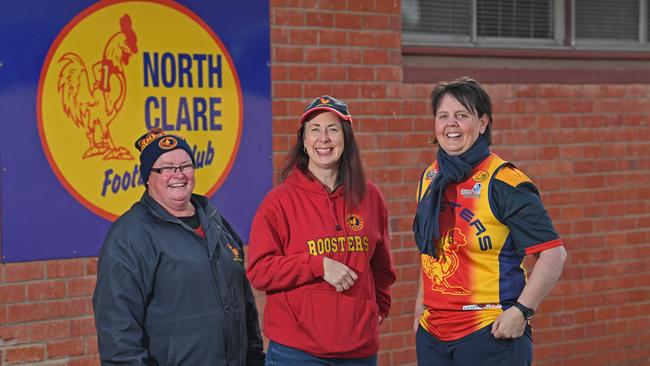
“We just love watching football, we don’t just see our own kids out there, we love all the kids – they are all our boys,” the mum of three said.
The group’s members are all diehard volunteers.
“We are on committees, coaching, one has just finished running the canteen for the past three years, we’ve been team managers and in the last couple of years a few of the girls have become runners and trainers,” Mrs Earle said.
“I would like to think whatever we are asked to do, we will get in and do.”
Volunteers play a vital role
Gary Humphrys is the type of person every footy club needs.
Since he first arrived at the-then Myponga Football Club – now Myponga-Sellicks – as a player in 1973, he has taken on nearly every possible role.
He has been the Mudlarks’ president, secretary and a committee member, and, since the late 1980s, he has been a trainer – a role he has continued to this day.
He is at Myponga Oval every Tuesday, Thursday and Saturday – at the minimum.
“My life revolves around the club,” the “very worn” 61-year-old said.
“I’ll jump on the barbecue or behind the bar on a Saturday, whatever needs to be done.
“I shifted around a lot when I was younger and it became my spiritual home once I got here.”
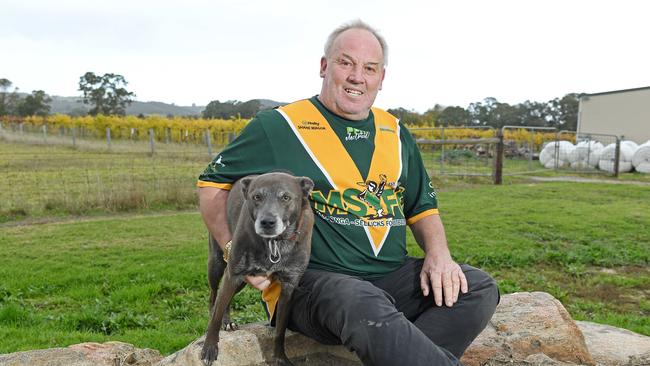
Humphrys’ presence at Myponga Oval, which in pre-COVID-19 times hosted Thursday night community meals, means there are few locals he does not know.
“Even now, wherever I go, I see the young kids whose parents I played with or got to know through footy and they will go ‘there’s Humpy’,” he said.
“It’s a great way to get to know the community.”
His dedication to the club makes the coronavirus shutdown even more difficult.
“I’m getting very bored, I’ll tell you that,” Humphrys said.
But he hoped people would appreciate sport more when competitions resumed.
“I must have heard five or six parents say ‘I’ll never complain about taking kids to sport again’,” he said.
“They are missing it just as much as the kids.
“I think that people are missing sport so much they will give more support to volunteers when it comes back and get involved.”
Shirley: Junior footy must be supported
He played 151 games for the Crows and became one of the best taggers in the AFL.
But for the past seven years, Robert Shirley has played for the Cummins Ramblers in the Great Flinders Football League.
Shirley was delisted by the Crows in 2009 and turned his back on a chance to go to the Gold Coast Suns, instead opting to join Woodville West-Torrens. Work then took the respected club player to the Eyre Peninsula.
“I’m from Whyalla and, with two young kids my wife, I always wanted to return to the country,” Shirley said.
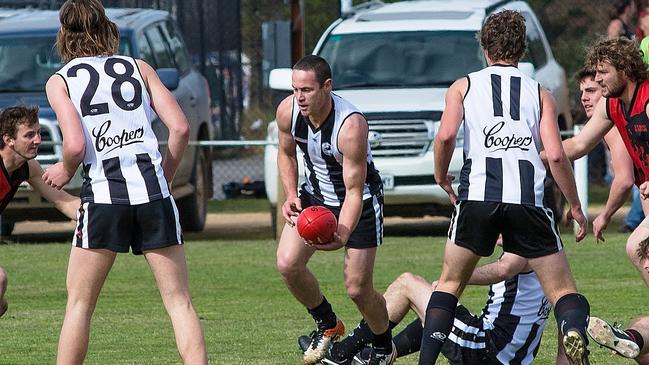
New to the Cummins area, playing for the Magpies helped him and his family bond with the community.
“It is very much a social gathering point,” he said of the local club.
“Wednesday night training and also Saturday, where you have football and netball playing on the same day, which is a huge advantage for atmosphere.”
The 39-year-old had planned to retire in 2020, but now expects to again pull on the boots, to help make up numbers when football returns.
“I was planning on still being involved in the club (as a volunteer), my son and daughter go down there,” he said.
“But I can see myself playing a few B-grade games to help fill a team.”
He hoped the federal and state governments would help out football clubs such as the Ramblers and leagues such as the Great Flinders Football League once competition was able to resume.
He said the initial focus should be on junior activities.
“That is the most important, in my view,” he said.
“The kids just love that activity. Adults can keep themselves entertained in other ways, kids need their sport.”
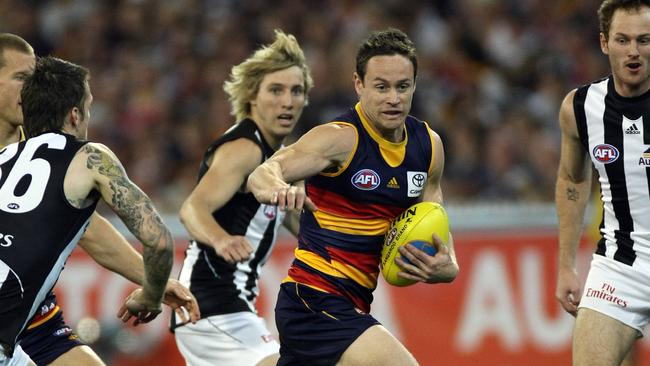
Support Our Clubs
advertiser.com.au is proud to launch a new series called Support Our Clubs, which aims to support our sporting codes and clubs as they emerge from lockdown and to show how much they mean to our cities, towns, regions and communities.
With the return of sport at both elite and community level set to be determined by the national Cabinet next Friday, the series will run each day in The Advertiser, will ask key questions including what clubs will need to get back on their feet, what are the key challenges they face and what communities can do to support them in this, their hour of need.
